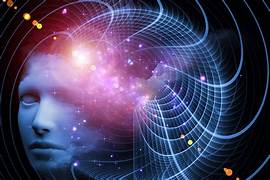Extrasensory perception—ESP—is defined by parapsychologists as the acquisition by a human or animal mind of information it could not have received by normal, sensory means. Some researchers, however, take issue with the term “extrasensory perception.” They protest that the phenomena may not be “perception” at all, as the receiver of this information does not know if the knowledge is right or wrong when he or she first perceives it. It takes a corroborating incident to convince anyone that he or she has perceived anything via extrasensory means. Some parapsychologists prefer to say “paranormal cognition,” but this term is subject to the same sort of criticism if the receiver is not instantly certain of the validity of the information. Besides, the researchers insist that the material in their field will eventually merge with present-day physics, so the adjective “paranormal” may be considered a misnomer.
Contrary to common usage, a parapsychologist is not a psychic, a mentalist, an astrologer, or one who gives psychic readings. A parapsychologist is generally a member of the Parapsychological Association, which was founded in 1957 and elected an affiliate of the American Association for the Advancement of Science in 1969. A parapsychologist is a scientist who is seriously interested in the paranormal (or anomalous phenomena), which includes telepathy, clairvoyance, precognition, psychokinesis, hauntings, reincarnation, and out-of-body or near-death experiences.
Here are brief definitions of the areas of ESP that are studied by parapsychologists:
Clairvoyance is the awareness, without physical aids or normal sensory means, of what is going on elsewhere. In recent years, clairvoyance has sometimes been called remote viewing.
Out-of-body experience (also called astral projection) is the apparent projection of the mind from the body, often with the seeming ability to travel great distances in a matter of seconds.
Precognition (premonition) is the obtaining of information about the future that could not have been gained through normal means.
Psychokinesis (telekinesis) is the movement of objects, seemingly caused by some force unknown to physical science. The direct action of mind on matter is the parapsychologists’ current nominee as the energy involved in poltergeist cases—those bizarre occurrences when bottles and crockery float through the air, fires break out on living room tables, or disembodied voices cackle threats and obscenities.
Telepathy is the transference of thought from one mind to another. Distance and time seem unable to affect this phenomenon.


Leave a Reply